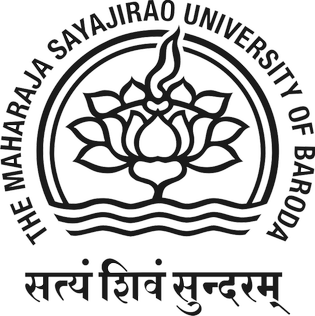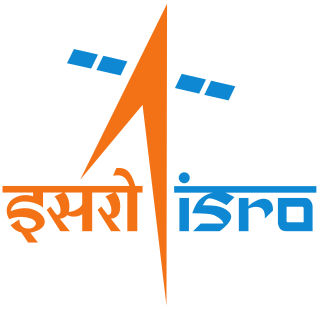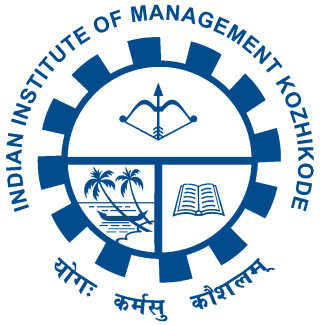Related Research Articles
The Indian Institutes of Management (IIMs) are Centrally Funded Business Schools for management offering undergraduate, postgraduate, doctoral and executive programmes along with some additional courses in the field of business administration. The establishment of IIMs was initiated by Jawaharlal Nehru, the first prime minister of India, based on the recommendation of the Planning Commission of India.

Bihar is a state in Eastern India. It is the third largest state by population, the 12th largest by area, and the 15th largest by GDP in 2021. Bihar borders Uttar Pradesh to its west, Nepal to the north, the northern part of West Bengal to the east, and Jharkhand to the south. Bihar is split by the river Ganges, which flows from west to east. On 15 November 2000, southern Bihar was ceded to form the new state of Jharkhand. Only 11.27% of the population of Bihar lives in urban areas as per a 2020 report. Additionally, almost 58% of Biharis are below the age of 25, giving Bihar the highest proportion of young people of any Indian state. The official language is Hindi, which shares official status alongside that of Urdu. The main native languages are Maithili, Magahi and Bhojpuri. But there are several other languages being spoken at smaller levels.

Maharaja Sayajirao University of Baroda, formerly Baroda College, is a public university in the city of Vadodara, Gujarat, India. Originally established as a college in 1881, it became a university in 1949 after India's independence. It was later renamed after its benefactor Maharaja Sayajirao Gaekwad III, the former ruler of Baroda State.

Indian Institute of Management Ahmedabad, is an Indian business school, located in Ahmedabad, Gujarat, India. As one of India's premier Indian Institutes of Management, the school has been accorded the status of an Institute of National Importance by the Ministry of Human Resources, Government of India in 2017.
The television industry in India is very diverse and produces thousands of programmes in many Indian languages. Nearly 87% Indian households own a television. As of 2016, the country had over 900 channels of which 184 were pay channels. National channels operate in Hindi and English, in addition to channels in several other languages including Telugu, Tamil, Kannada, Malayalam, Bengali, Marathi, Odia, Punjabi, Assamese, Gujarati, Urdu, Bhojpuri, Kashmiri, Konkani and Haryanvi, among others. The Hindi, Telugu and Tamil language television industries are by far the largest television industries in India.

Indian Space Research Organisation is India's national space agency. It serves as the principal research and development arm of the Department of Space (DoS), overseen by the Prime Minister of India, with the Chairman of ISRO also serving as the chief executive of the DoS. It is primarily responsible for space-based operations, space exploration, international space cooperation and the development of related technologies. The agency maintains a constellation of imaging, communication and remote sensing satellites. It operates the GAGAN and IRNSS satellite navigation systems. It has sent three missions to the Moon and one mission to Mars.

Indian Institute of Management Bangalore is a reputed business school and an Institute of National Importance located in Bangalore, Karnataka, India. Founded in 1973, it was chronologically the third in the first generation of IIMs to be established, after IIM Calcutta and IIM Ahmedabad, thereby forming the elite Indian B-School trio colloquially known as 'ABC', or 'IIM A/B/C'.

Indian Institute of Management Kozhikode is an autonomous public business school located in Calicut (Kozhikode), Kerala. The institute, set up in 1996 by the Government of India in collaboration with the State Government of Kerala, is one of the 20 Indian Institutes of Management (IIMs). It was the fifth IIM to be established.

The Indian Institute of Foreign Trade (IIFT) is a public business school headquartered in New Delhi, Delhi, India. It has been proposed to be declared as an Institute of National Importance by the Government of India. Established in 1963, it functions under the Ministry of Commerce and Industry of the Government of India. It also serves as a training institute for the probationary officers of the Indian Trade Service. Its headquarters are in New Delhi and it has additional campuses in Kolkata and Kakinada.
Mahatma Gandhi National Rural Employment Guarantee Act 2005 or MGNREGA, earlier known as the National Rural Employment Guarantee Act or NREGA, is an Indian social welfare measure that aims to guarantee the 'right to work'. This act was passed on 23 August 2005 and was implemented in February 2006 under the UPA government of Prime Minister Manmohan Singh following tabling of the bill in parliament by the Minister for Rural Development Raghuvansh Prasad Singh.

Kyujanggak, also known as Gyujanggak, was the royal library of the Joseon Dynasty. It was founded in 1776 by order of King Jeongjo of Joseon, at which time it was located on the grounds of Changdeokgung Palace. Today known as Kyujanggak Royal Library, the Kyujanggak Archives are maintained by Kyujanggak Institute for Korean Studies at the Seoul National University, located in Sillim-dong, Gwanak-gu in Seoul. The archive functions as a key repository of Korean historical records and a centre for research and publication of an annual journal titled Kyujanggak.

Goa University is a public state research university headquartered in the city of Panaji, in the Indian state of Goa.

Indian Institute of Technology Ropar is a public technical university located in Rupnagar, Punjab, India. It is one of the eight Indian Institutes of Technology (IITs) established in 2008 by the Ministry of Human Resource Development (MHRD), Government of India under The Institutes of Technology (Amendment) Act, 2011 to expand the reach and enhance the quality of technical education in the country.

Indian Institute of Technology Gandhinagar is a public technical university located in Gandhinagar, Gujarat, India. It has been declared to be an Institute of National Importance by the Government of India. Established in 2008, IIT Gandhinagar campus is spread over 400 acres of land along the river Sabarmati.

Aadhaar (Hindi: आधार, lit. 'base, foundation') is a twelve-digit unique identity number that can be obtained voluntarily by all residents of India, based on their biometrics and demographic data. The data is collected by the Unique Identification Authority of India (UIDAI), a statutory authority established in January 2016 by the Government of India, under the jurisdiction of the Ministry of Electronics and Information Technology, following the provisions of the Aadhaar (Targeted Delivery of Financial and other Subsidies, benefits and services) Act, 2016.

The Indian Institutes of Technology (IITs) are a network of engineering and technology institutions in India. Established in 1950, they are under the purview of the Ministry of Education of the Indian Government and are governed by the Institutes of Technology Act, 1961. The Act refers to them as Institutes of National Importance and lays down their powers, duties, and framework for governance as the country's premier institutions in the field of technology. 23 IITs currently fall under the tenor of this act. Each IIT operates autonomously and is linked to others through a common council called the IIT Council, which oversees their administration. The Minister of Education of India is the ex officio chairperson of the IIT Council. According to data obtained through Right to Information (RTI) applications, approximately 38% of Indian Institute of Technology (IIT) graduates from the class of 2024 have not secured job placements. This is the highest percentage in the past three years, with a steady increase from 19% in 2021 and 21% in 2022.

Digital India is a campaign launched by the Government of India to make its services available to citizens electronically via improved online infrastructure and by increasing Internet connectivity. The initiative includes plans to connect rural areas with high-speed internet networks. It consists of three core components: the development of secure and stable digital infrastructure, delivering government services digitally, and universal digital literacy.

The Sagarmala Programme is an initiative by the Government of India to enhance the performance of the country's logistics sector. The programme envisages unlocking the potential of waterways and the coastline to minimize infrastructural investments required to meet these targets.

The National Institute of Technology Tiruchirappalli is a national research deemed university near the city of Tiruchirappalli in Tamil Nadu, India. It was founded as Regional Engineering College Tiruchirappalli in 1964 by the governments of India and Tamil Nadu under the affiliation of the University of Madras. The college was granted deemed university status in 2003 with the approval of the University Grants Commission (UGC), the All India Council for Technical Education (AICTE), and the Government of India and renamed the National Institute of Technology Tiruchirappalli.
References
- ↑ Aditya Dev (14 October 2017). "UP govt plans to digitize land records in 70 districts - Times of India". The Times of India . TNN. Retrieved 7 March 2019.
- ↑ "How well is India's land record digitisation programme doing: Findings from Rajasthan". Indus Dictum. 22 December 2017. Retrieved 7 March 2019.
- ↑ How an IIT team is helping put 1,000 villages on the map of India?
- ↑ "Two centrally sponsored schemes of land records merged". Outlook . 27 August 2008.
- ↑ Anirudh Burman (17 January 2019). "Land reform a game-changer that Narendra Modi government has overlooked". The Print. Retrieved 7 March 2019.